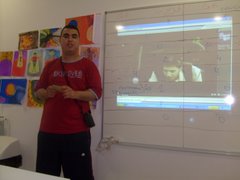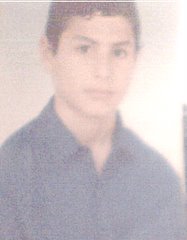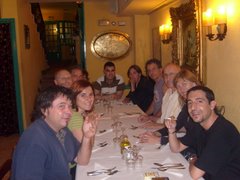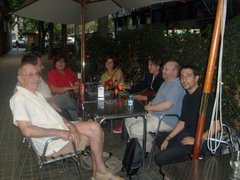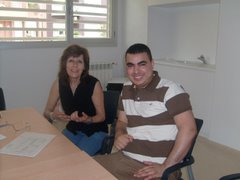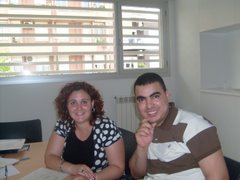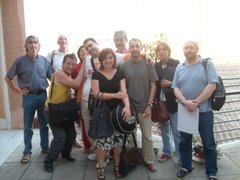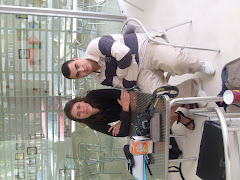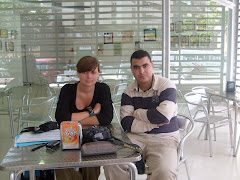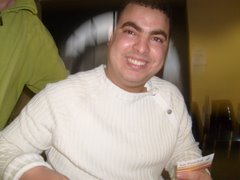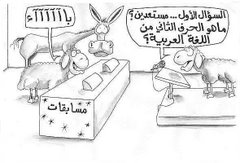 Actions Which Nullify the Fast
Actions Which Nullify the FastThe following acts, when done knowingly and deliberately in the days of Ramadhan, will invalidate the fast. In addition to being considered great sins, a person committing one of these acts will have to continue fasting the rest of the day that he/she committed it, and he/she is also required to take certain measures of reconciliation as indicated below.
1-Intentional eating, drinkingAllah says [in the meaning of]: "Eat and drink until the white thread becomes distinct to you from the black thread of the dawn. Then strictly observe the fast until nightfall."
[al-Baqara, 2:187].
This applies to the one who does so consciously. However, if a person eats or drinks forgetfully or accidently or is forced to do it, the fasting is intact, the day is not to be made up and the person should continue fasting.
Abu Hurairah reported that the Prophet (S) said:"Whoever forgets he is fasting, and eats or drinks is to complete his fast, as it is Allah who fed him and gave him something to drink."
[Bukhari, Muslim and others]Ibn Abbas reported that the Prophet (S) said:" Allah has excused for my Ummah mistakes, forgetfulness and what they are forced to do".
[Tahawee, al-Hakim and Daraqutni; Sahih].Similar to eating and drinking is smoking [besides being prohibited in itself] and letting any substance into the stomach.
However, if a person eats or drink out of forgetfulness, then he/she should continue fasting and the day fasted is valid and counted and does not need to make up the day. This is based on the hadith of Abu Huraira in Sahih al-Bukhari: The Prophet said, "If somebody eats or drinks forgetfully then he should complete his fast, for what he has eaten or drunk, has been given to him by Allah.".
Similarly if a person breaks the fast before the actual maghrib (sunset) or after fajr because of a mistake in time recognition, he is not to make up the day.
2-Sexual intercourseJust like eating and drinking Allah has forbidden sexual intercourse during the days of Ramadan;
"Permitted to you, on the night of the fasts, is the approach to your wives. They are your garments and ye are their garments. Allah knows what you used to do secretly among yourselves; but He turned to you and forgave you; so now associate (i.e. have sexual intercourse) with them, and seek what Allah Hath ordained for you (i.e. offspring), and eat and drink, until the white thread of dawn appear to you distinct from its black thread; then complete your fast till the night appears; but do not associate with your wives while you are in seclusion (I`tikaf) in the mosques. Those are Limits (set by) Allah. Approach not nigh thereto. Thus does Allah make clear His Signs to men: that they may learn self-restraint.
[al-Baqara; 2:187]
The `ulama' [Scholars] differ about stimulating oneself [whether alone or with his wife or vise versa], without intercourse, to the point of ejaculation. Some of them treat it as complete intercourse, while others say that it does not invalidate the fast even though it causes a loss of its rewards.
3-Intentional vomitingAbu Hurairah reported that the Prophet (S) said :"Whoever is overcome and vomits is not to make up the day. Whoever vomits intentionally must make up the day."
[Ahmad, Abu Dawud, at-Tirmithi and Ibn Majah; Sahih]
4-Poor IntentionsFailing to intend (i.e. with the heart) to fast from before the dawn of the day of fast. (Note: voluntary or nafl fasting is excepted from this requirement)
Intending to stop fasting at any moment during the day of fast. These last two actions are actions of the heart and are related to the intention which has been shown as being an essential element [or pillar] of fasting. These actions void the fast even if the person does not actually eat anything. This is because the intention is one of the pillars of the fast and, if one changes his/her intention, he/she has nullified his/her fast.
Except intercourse, a day invalidated by such an action cannot be atoned by even fasting the whole life. Thus, in addition to the qadha' [making up the day], the only way to atone such an act is by true and sincere repentance and strong determination never to do it.
The only action, according to most scholars, which requires that both the day be made up and the act of expiation be performed is having sexual intercourse during a day of Ramadan.
Abu Hurairah reported that a man came to the Messenger of Allah and said: "I am destroyed, 0 Messenger of Allah!" The Prophet asked: "What has destroyed you?" He said, "I had intercourse with my wife during a day of Ramadan." The Prophet asked: "Are you able to free a slave?" He said, "No". The Prophet asked: "Is it possible for you to fast for two consecutive months?" He said, "No." The Prophet asked: "Is it possible for you to feed sixty poor people?" He said, "No." The Prophet said: "Then sit." A basket of dates was brought to the Prophet and he said to the man: Give this in charity. The man said: "To someone poorer than us? There is no one in this city who is poorer than us!" The Prophet laughed until his molar teeth could be seen and said: "Go and feed your family with it."
[Bukhari, Muslim and others]
Most scholars say that both men and women have to perform the acts of expiation (Kaffarah) if they intentionally have intercourse during a day of Ramadan on which they had intended to fast.
5-Injections containing nourishmentThough this type of action is committed intentionally and thus falls under intentional eating and drinking, it is not considered as a sin if given to a sick person in need of it. All what is needed is to make up the day later. These injections are meant to give nourishment intravenously so that it reaches the intestines, with the intention of nourishing the sick person. Also if the injection reaches the blood-stream then it likewise breaks the fast since it is being used in place of food and drink. Similar is the use of drips containing glucose and saline solutions, and inhalers used by people sick of asthma. May Allah relieve all sick believers.
Involuntarily events that break the fast
The fast is disrupted (and there is no point or reward then in continuing to fast) when a woman
sees the blood caused by either of:
1-Menstruation2-post-childbirth bleeding
Even if such bleeding begins just before the sunset, the fast of that day is rendered invalid. A woman in this case will have to fast a day later (qadha') for every day (or part of day) that she missed.
If a menstruating woman becomes Tahira (ceases bleeding) before dawn, then she takes her Ghusl (purifying shower) and intends to fast the next day. However, if she becomes Tahira after fajr then she takes her ghusl, and starts praying as usual and the day has to made up after Ramadan. She may eat and drink during that day as it is an invalid day as Shaikh Ibn Otheimin observed.
The Prophet (S) said: "Is it not that when she [the woman] menstruates, she does not pray nor fast?" We said : Yes indeed. He said: "That is the deficiency in her Deen [religion]. In another narration: "She remains not praying at night and refraining from fasting in Ramadan, that is the deficiency in her Deen".[
Muslim] The order to make up for the days of menstruation is reported in the lesson `Aishah gave to Mu`aathah who came and asked her "Why is it that the menstruating woman has to make up her fasts but not the prayers?" `Aisha said: "Are you a Harooree(*) woman?" I (Mu`aathah) said: "I am not a Harooree woman, but I wish to ask". `Aisha said: "That used to come upon us and so we were ordered to make up the fasts and were never ordered to make up the prayers"
[Bukhari and Muslim]
(*)Haroorees are the people of Haroora near Koofa [Iraq]. They had the belief of Khawarij who fought Ali radhiya Allahu `anh. They make it obligatory on the woman to make up her prayers if she menstruates. `Aisha feared that Mu`aathah was among them.






 سامي يوسف: "لنصلي من اجل دارفور
سامي يوسف: "لنصلي من اجل دارفور



























